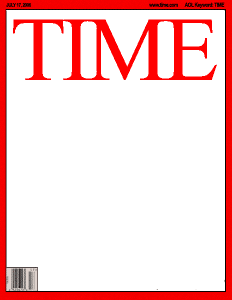 The following article appeared in Time Magazine in their Education Section
The following article appeared in Time Magazine in their Education SectionIn the U. S., the Ancient Order of Hibernians is an association of Irish-born zealots, sensitive to the slightest slight to their kind. In a world preoccupied by other matters, for instance, it frequently appears to good Hibernians that the impact of the Irish on U. S. history is belittled or neglected. In Rochester last week, where the Hibernians of New York State were holding convention, fiery charges were heard that U. S. schoolbooks are unfair to the Irish.
“We need a real American history!” shouted wispy, grey John McAdam, State Chairman of Irish History. “The ones we now have are mostly just an additional chapter of English history. Why, 90% of our histories were written by New Englanders, and they certainly have no sympathy for the Irish.”
The errors charged by Historian McAdam were those of omission rather than commission. Among those individuals and groups whom he cited as suffering from insufficient treatment in U. S. school books were:
1) Irish soldiers of the Revolution. Few persons know, declared Historian McAdam, that 35% of George Washington’s army was Irish.
2) Soldiers of Irish birth or extraction who fought on the Union side in the Civil War number, according to Historian McAdam: 180,000.
3) Timothy Murphy, one of General Morgan’s sharpshooters, who figured importantly in the Battle of Saratoga. After waiting a long time for someone else to do so, the Hibernians have erected a monument to Timothy Murphy.
4) Commodore John Barry, first man to receive a U. S. naval commission (1794). Commodore Barry, it appeared, had a better claim to be called “father of the Navy” than John Paul Jones (born in Scotland), who, according to Historian McAdam, died a subject of France. The Hibernians were gratified when the U. S. recently issued a postage stamp in Barry’s honor, are now trying to have a destroyer named for him.
After his discourse, Mr. McAdam was pressed by newshawks for further details. Would he cite unfairness to the Irish in schoolbooks by title and page number? No. It was not that the Irish were deliberately besmirched, just that they had not had their due. Born in County Fermanagh, Northern Ireland, John McAdam emigrated to the U. S. 42 years ago, is now a New York State engineer, spends his spare time delving into Irish history.
Now before anyone starts an email to the publishers of Time, the date of this article is Monday, Sept. 06, 1937
However, we as Hibernians have to ask ourselves how much has changed? How many of our fellow citizens are acquainted with the four items cited above along with the many, many other contributions that Irish men and women have made to our nation. History books may no longer be written by “New Englanders”, but the forces of Political Correctness and Revisionism still have the “No Irish Need Apply Sign” (which some academics persist in denying ever existed despite overwhelming evidence) hangs on the door of school curricular.
This year marks the 31st proclamation of Irish American Heritage Month, let us vow to make this article from 1937 obsolete.